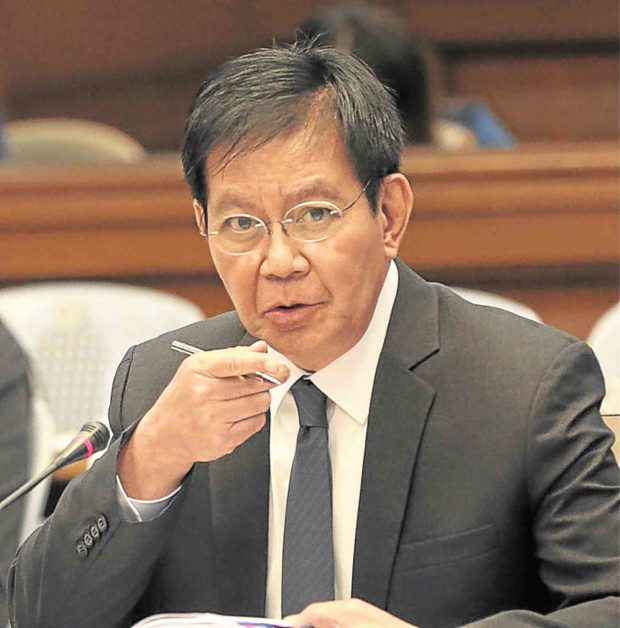
Sen. Panfilo Lacson
The Senate committee on public order and dangerous drugs may recommend disciplinary actions, including the disbarment of Aegis Juris fraternity members who are trying to cover up the hazing death of Horacio “Atio” Castillo III, according to Sen. Panfilo Lacson.
Lacson, chair of the committee looking into Castillo’s death, floated this possibility after his fellow senators expressed displeasure over how the fraternity, a mix of practicing and future lawyers, acted to cover up the crime to evade investigation and prosecution.
Transcript of hearings
“We will send a transcript of the hearings to the Supreme Court so we can recommend what appropriate actions it can take to discipline these lawyers, who are in fact treading a different course, although motu proprio the high court can initiate its own investigation,” Lacson said in a radio interview on Friday.
On the aspect of legislation, the senator said the committee could recommend an amendment to Republic Act No. 8049, or the Anti-Hazing Law, making the punishment more severe for the cover-up of the crime.
Chief Supt. Joel Napoleon Coronel, the Manila police director, on Wednesday presented to the Senate committee a 38-page slide of screen shots of Facebook conversations among the fraternity members.
The Facebook chat group thread started on the day Castillo was believed to have died from excessive beating during his initiation into the fraternity.
Coronel said the conversations—including how the fraternity planned to clean up the site of the initiation rites and to make a settlement with Castillo’s family to keep them quiet—showed the members’ attempt to cover up the crime and evade prosecution.
Grounds for disbarment
On Thursday, Sen. Francis Escudero, a lawyer, said the fraternity members’ alleged participation in the conversations and in the actual hazing could be grounds for their disbarment or could prevent them from taking the bar examinations.
Sen. Sherwin Gatchalian on Wednesday said that it was disturbing that “respected members of society such as lawyers” were the ones encouraging their younger counterparts to conceal evidence and deceive authorities.